
In the Beginning was the Word - "Mrinal Pande"
One winter afternoon seventeen of us, gently greying women journalists met on a lawn on the Parliament Street, flanked by buildings housing male power in various fields. The year was 1995 and the subject we wished to discuss was the creation of an exclusive press club for women journalists working in all Indian languages. Delhi is a city where the molding, direction and expression of political power organizes each discussion and its discussants into two groups : feminine and masculine; men and women. This division underlies and reinforces the totality of India’s power discourse. And we were getting rather tired of every now and then being treated as co-consumers of the surplus news the men in the profession extracted from the power arena. We wanted a watering hole of our own, where we could meet over cups of tea or coffee ( alcohol would require a bar license which we could not afford), and let our hair down, swap professional information, tips for the younger ones and sometimes just professional gossip.As senior journalists it was obvious to us by now, that equality required a genuine change without necessarily assuming a bitterly confrontationist stance. We told our male colleagues at the Press Club that we would continue to be members of the club but our needs and numbers needed a genuine change and a new relation between our lives and journalism. As a compassionate female judge, Justice Claire L’Heureux Dube’ of Canada once said equality is not about equal treatment or some mathematical equation waiting to be solved. It is about human dignity and a full membership in a group. It is about promoting an equal sense of self-worth. To their credit they understood and chased the issue no more. As a matter of fact many of them helped us generously during the initial years when we were short of funds
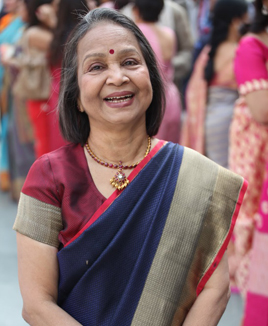
A Dream Come True - "Kalyani Shankar
"
The IWPC is a dream come true for the founder members because there were many initial hurdles to cross but it became a reality within three months of our efforts to form a women journalists’ press corps. It has survived these 25 years and has grown from strength to strength.I was very impressed with the Washington National Press club when a friend took me there in February 1994. It was a great professional organisation. When I came back, I casually mentioned this to Coomi. She was quite enthusiastic and took the initiative immediately to sound a dozen other women journalists in Delhi. It took some time before she collected 18 signatures including that of Usha Rai, Rashmi Saxena and Mrinal Pandey. We had a second meeting at Usha’ s house where she served us delicious upma and tea and took it to the next level. In the third round, it concretised further. We were clear that the new body would not be called a club as it was meant to be a professional body. We ultimately agreed on the name Indian Women Press Corps. Then, Rashmi found a lawyer who drafted the constitution of the IWPC and it was registered. Mrinal Pandey, the then editor of the Hindustan became the first president, Rashmi the general secretary, Coomi joint secretary and I became vice president. Most founding members were elected to the managing committee. Incidentally, how we identified 5 Windsor Place was quite interesting. It was sheer luck that we found the present IWPC premises. One day Coomi, Saroj and I while walking around after lunch found 5 Windsor Place vacant. We thought how nice it would be if we could get that bungalow for our organisation. Our next stop was the CPWD office in the Feroz Shah Road right across where we got more details about the place. Then we sought a meeting with Prime Minister P.V. Narasimha Rao.

Growing Up to Take a Stand - "Neerja Chowdhury"
The significance of 25 years of IWPC goes beyond the creation of a body of professional media women, which provides a home to women journalists away from home, a workplace away from workplace, a watering hole and a safe environment from where they can function during the day. They can read in the library, work on their laptops or on computers provided in the workroom. They have a place where they can connect with colleagues and “sources” and potential sources in a congenial environment, while keeping an eye on the latest breaking news on television. Or they can sit out in the well maintained garden at 5 Windsor Place, talking to friends or newsmakers, in the winter months soaking in the bright sunshine of Delhi, which is a rare luxury in the middle of those pressured hours as they move from one appointment/ assignment to the next. When a group of us discussed the setting up of the Indian Women’s Press Corps a quarter century ago, one of our concerns was to be able to function in an environment, very different from one where PR men surrounded media persons in other clubs.Over the years the IWPC has grown to be a professional body and not just a club. Newsmakers want to come and interact with women journalists and we have had figures right from the Prime Minister to chief ministers to environmentalists, economists, foreign policy experts, or child rights activists come and speak on a host of issues-- and answer questions. Putting probing questions to rulers and policy-makers was taken for granted in the years gone by. But today this is becoming more and more infrequent. Conversations have become so one sided and politicians have their say via tweets Facebook blogs or Instagram without subjecting themselves to scrutiny. That is why many look forward to these exchanges at the IWPC.

Between Bylines: Chronicling the journey of Women Journalists -Pamela Philipose
With a home of our own at 5, Windsor Place, it was time to acquire an identity of our own. Who were we, anyway? Nobodies, really, without the words that we had strung together – as reporters, commentators, analysts, in variegated publications and in various languages. That’s when somebody came up with a eureka moment: let’s collate the work of women journalists said that unremembered Archimedes. Everybody nodded. The rest is history and a brave volume bearing on its cover an Arpita Singh painting and entitled, ‘Between Bylines: Women Journalists Report On Their Times’. Remember, this was 14 years ago, when DD had a stranglehold on “prime time” - such as it was - and today’s formidable women television journalists were still bunking college lectures. Print ruled the media space. So the venture seemed representative enough, although it was decided that more ambitious plans to rope in work in regional languages would have to wait and that only English and Hindi journalism would be showcased.As the words poured in – in the form of handwritten notes, on dog-eared sheets of paper, as photocopies and yellowing clippings - it became clear there was something substantive here. As Mrinal Pande, then president of the IWPC, wrote in her preface, “We present here a first sampling of the myriad world of journalistic writing of women scribes.” ‘Sampling’ was right. The volume could not claim to be comprehensive, either in terms of contributors or subject matter, dominated as it was by the English language and Delhi heavies, and spanning as it did a vast, inchoate space ranging from reminiscences and political reportage to gender and humour. There was Neerja Chowdhury capturing the mystique of a still-very-much-in-the-closet Sonia Gandhi in a piece written in January 1995 – almost a decade before the famed renunciation of 2004. Wrote Neerja: “At the moment she is more likely to position herself in such a way so that she can be the power behind the throne.”

A Home Away From Home -Rashme Sehgal
This is a moment of celebration. It is not the time to quibble over shortcomings or over petty insinuations. We are 25 years old and that in itself is a major achievement. To have built up and sustained a media organisation through its many ups and downs is no mean achievement.And to imagine, when the idea was first floated, that we would travel so far is something none of us would have ever imagined. But we have! We have also shown our sceptics that `sisterhood’ in all its rainbow colours works! Eighteen founding members got together 25 years ago and donated Rs 1000 each, a princely sum in those days, to create a corpus. Today we have a small secretarial team, a full time manager to supervise the kitchen and a staff that has stayed with us through our many ups and downs, and a corpus that has increased exponentially from then! We have increased this by successfully staging an annual fund raising cultural event in collaboration with the ICCR that on occasions has proved a show stopper. We also hold press meets, have held badminton tournaments in the past as also table tennis tournaments. This year we had a scrabble tournament and some members settle down on a Saturday afternoon to play a game of bridge.How did the IWPC come about? What were the reasons we all sat down to do some brain storming in order to create an all women media organisation? Suffice to say that the reputation of the Press Club of India, our neighbour geographically, was going through a low, and several women complained that they needed a place to unwind, work from and also where they could leave their kids as they went about attending press conferences and meeting deadlines. Eighty per cent of the battle was won when former prime minister PV Narasimha Rao agreed to allocate this centrally located Lutyen’s bungalow to us. All kinds of rumours had been floating about the previous incumbents of this residence. And no, we did not resort to any jaadu tonas to remove those bad vibrations!
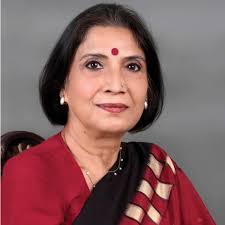
Transforming a gamblers’ den - "Rashmi Saksena"
Twenty five years ago, when I first stood at the gate of 5 Windsor Place it did not look inviting. It still had yet to be allotted to IWPC but had been identified by the Coomi-led house hunting team. Tall grass blocked it out from view. It was cloaked in eerie silence made worse by the dark of late evening. A dim light stole out of a window. I peeped in and saw men squatting on the floor playing cards! A man came out saying this was a CPWD dump and out of bounds for outsiders.In the tenements behind the bungalow I met a girl who rented the room that went with it. She disclosed the house was a lottery and gambling den. The information was discreetly passed on to the concerned authorities and 5 Windsor Place was finally ours. The first sweep of the property by this girl (who agreed to work for us in exchange of rent) and me raked in a number of lottery tickets! We had a property but no furniture, no bank account and not even an IWPC constitution. As the first general secretary of IWPC (the office bearers had been put in place at a meeting held at the Press Club to introduce the idea to women journalists), the challenge was daunting but exciting. Three days of the place becoming ours we met for the first ever meeting in the IWPC premises. We brought durries, cushions and mugs and tea flasks from home. The room was filled with laughter, bonhomie and dreams for IWPC! I unveiled the first ever IWPC name plate which I had got done that morning by a painter sitting under a tree in Gole Market. He was the cheapest and the clincher for everything because our kitty was only Rs 18,000 contributed by the 18 founder members. It was nailed on the right-hand pillar of the gate amidst spontaneous cheers. Our first treasurer Harminder Kaur then took us to the bank to open an account only to be told that we need to first have IWPC registered!
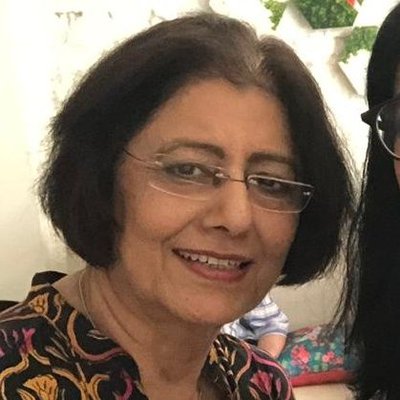
IWPC Equals Friendship - "Sushma Ramachandran"
As a business journalist starting out nearly 40 years ago, it was a largely male-dominated world. Whether it was a conference or a press meet, I was invariably the only woman reporter. Luckily, I was often sent to cover non-economic events which is where I managed to meet some other women colleagues. And in my own office too, the Times group, there were a few including veteran journalist Usha Rai. But for many years, I was the sole woman at most business-related news events. This changed dramatically after liberalization of the economy when large numbers of women entered the field of business reporting and writing. And now of course, women have virtually taken over the business television channels.It was in this backdrop that becoming a founding member of the Indian Women’s Press Corps became significant in my life. It became a gateway for me to develop many friendships and relationships with my women colleagues which have now lasted over decades. One of the great plus points of being in IWPC is also that one makes friends literally every day. As a result, I now have women friends spanning all ages. From those who are my peers in the profession, to those who are young enough to be my daughters and are frantically busy, much as I was at their age. Perhaps one of the most unique activities of IWPC are the foreign tours where a group of members are able to go abroad and combine professional work as well as some amount of tourism. I was fortunate to go on two of these tours, one to China and the other to Egypt. The first was a large group of nearly 20 women and the trip was chaotic simply because its difficult to organize such a big group. Many of those on the trip were already my friends but many others were completely unknown to me. I returned from that trip having developed several lifelong friendships
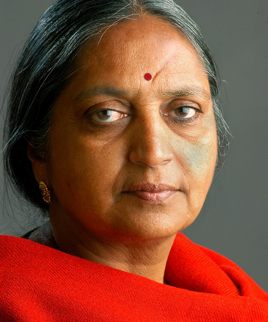
Propelling nascent dreams in journalism - "Usha Rai"
Twenty five years ago IWPC was created as a second home for women journalists--- a space of their own--- where they could let down their hair; indulge in home cooked food and meet newsmakers for discussions. Though most of the founder members were established journalists, there were a large number of women on the desk and in language newspapers who did not get the opportunity to venture out and experience life as journalists. Though the Press Club was always open to us, it was a rumbustious place with liquor flowing and loud men. The shy, younger journalists, we felt, needed a quieter space of their own with opportunities to meet parliamentarians, social activists and others from the world of art and literature. We also wanted to be different from the Press Club by taking up women’s issues and doing our own in depth investigative reports that could be released to the media In 1994 we decided to make IWPC a spirited but booze-less club. We did not have the means to get a liquor license and also wanted to be different from other clubs! In any case there was the Press Club round the corner for those who liked their glass of cheer! There was also some opposition from a handful of women journalists who questioned the need for a club just for women journalists. “What is this segregation into male and female journalists,” they questioned and did not become members. Those early days are memorable. We brought durees and cushions from home, squatted on the floor and discussed giving shape and substance to our second home. We went hunting for unwanted table, chairs, furniture and books and newspapers for our library. Everyone was pushing the other to assume leadership but all contributed to the growth of the club. And slowly it grew. Old furniture gleaned with a new upholstered look as the more artistic among us took charge of renovation.
A Corps, not a Club - Coomi Kapoor
Ever since the Indian Women’s Press Corps (IWPC) was founded 25 years ago, there have been occasional sneers and jeers questioning the need for a separate forum for women journalists. The misplaced logic is that opening a body exclusively for women scribes is tantamount to dividing the profession on gender lines. Women journalists fought hard to be recognised as equal to their male colleagues, and by forming a separate organisation have turned the clock back, is the argument. Curiously, those who protest self-righteously against being associated with gender-based journalist organisations have no qualms about being active members and even office-bearers of various other media bodies, in which membership is also restricted, whether in terms of professional designation, field of coverage, print, TV and so forth. As one of the founding members of the IWPC, I have frequently been asked: Why the need for an IWPC when there is the Press Club of India (PCI), which is open to all journalists? The answer is that the corps, not club as it is often mistakenly referred to, was started with rather different objectives from the more jolly PCI, which was originally meant to be a convivial watering hole, a place to unwind after long hours at work. The IWPC was conceived not simply as a cheap and convenient meeting place. It was to be a professional forum upholding standards of journalism and fighting for important issues concerning press freedom. It would provide even junior members an opportunity to interact with people in the news and organise meaningful discussions on topical issues. Another important objective was to act as a support group for women in a profession where the demanding work schedule, unconventional hours and low wages, at least when women first entered the media, put a strain on a woman journalist’s social and family life. When I joined as a reporter in Delhi in the early 1970s, there was no such thing as a separate toilet for women either in my newspaper or near the Press Gallery in Parliament.

The Pull of the Zeitgeist -"Harminder Kaur"
Like the pull of the zeitgeist the need for a women's press club was strongly felt by each woman journalist 25 years ago. With long working hours and small children, women journalists felt they needed a place of their own where they could have professional interaction and leave their children in a safe environment of a crèche. The initial membership fee of Rs 1000 each from 18 founder members provided us with working capital for the initial expenses. The first big challenge was to have independent premises. The Press Club provided us
with a paradigm– to seek government allotment.And we got 5 WindsorPlace. I became the first treasurer. The challenges for the clubwere farfromover.We needed to generate funds and invest them judiciously over time to generate enough income to make the club sustainable. There was a total commitment among the founder members to make it a success so initially, each one coughed up a refundable amount Rs 5000-Rs10000 to augment the corpus and have enough funds to pay the rental and make the club functional. Whatever resources were at the disposal of
individual founder members, in terms of contacts, surpluses at home was pitched in – crockery was provided and bought, furniture was organised from Hyatt hotel, and a big conference table from FICCI to have the bare-minimum furnishing. There was total camaraderie and during functions – we nevershied away fromlending a helping hand to the kitchen staff as we did not have adequate funds to hire more people. This was the beginningandthe restis history. I was then working with the Delhi Bureau of Eenadu and Newstime and had put in 17 years in journalism. Having worked with relatively smaller magazines and regional newspapers, I had immense opportunities to cover hard beats. Among states Haryana, Punjab and Rajasthan
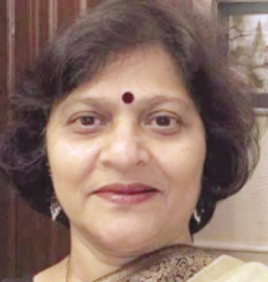
If I Had a Chance to Live Life Again - "Sheela Bhatt"
IWPC's special issue has given us time to reflect on our careers. For sometime I have been reflecting on one question: What is the biggest shortcoming of the last four decades of the Indian media, which I have been part of since 1979? Journalism is all about reflecting society's aspirations, pain and pleasures. It is about speaking truth to power as in a democracy the rulers are merely representatives of the people.
The media is expected to preserve and protect an individual's freedom and also portray all sides of an argument, extract the truth, however unpalatable it may be. Many issues in contemporary India are a baggage of history.There are issues like caste that the Indian State
and Constitution reject, which society a ls o o v e r w h e lmi n g l y fi n d s unacceptable. On issues of India's known fault-lines – communalism or casteism – the media has been helpingtotake thedebate forward. However, in the last three or four decades, the
media – including myself – has miserably failed to understand the urgency of making that 'Other India' – those millions living in villages and largely engaged in farming and ancillary industries – 'headline worthy.' New Delhi's English media has an intimidating presence in the political world, but from the 1970s to the present, it has never presented front pages news from the India that resides in villages. Before and during debates in Parliament, the 750 plus MPs – a majority of whom comes from villages or towns – are not bothered about the media's priorities. They know the real issues of their voters' lives and their respective regions are never understood nor taken up by the media with missionary zeal. The reasons behind farmers' suicides are many. Had we – editors and reporters – explained and insisted
how small farmers should get higher prices
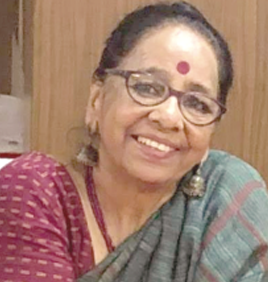
Opening the Doors - "Ritambhara Shastri"
That journalists are certainly not equals I realised the very first day of walking into the portals of a news agency office in the early eighties. Striding into the large-lawned Lutyens office building of the United News of India in response to a letter to “come and meet the chief news editor” one was a bit petrified. It was the first foray in job hunting. Stepping into the noisy editorial room clanking with loud teleprinters one handed over the letter to the CNE (chief news editor) busy in the corner of the room. He looked at the letter and then in disbelief at me clad in a saree: “No, but we have not called any girl,” he declared. He pointed out that my name was prefixed with a “Mr.” in the application – something that had skipped my notice too. Adjusting his specs that had almost fallen off in shock, he gathered his wits to add benevolently, “But we have a written test on Tuesday. You may take it.” I am sure he hoped I wouldn’t come but I did and sat with all the male applicants. I not only cleared it but topped making it that much more difficult for them to refuse. So it clearly was an entry by fluke and default in the male bastion, but staying on in journalism was diabolically both challenging and smooth. Challenging because one had to constantly prove that one knew one’s job. Smooth because there always were many willing to teach and guide. In fact, one sensed that colleagues were always vying with each other to be the one to guide. So, faring well in the male world was not exactly tough but rather pretty comfortable – probably by making them uncomfortable and compelling them to be at their best behaviour. Also, with time I realised that the male preference was not essentially out of prejudice, but more due to the necessity of manning, literally, the night and the graveyard extra night shifts. Soon that too was taken care of to a limited extent by making the girls work till midnight.
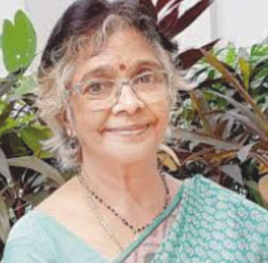
A counterpoint to the press club down the road "Radha Viswanath"
If I had gone looking for a job in journalism, I would not have got it. I come from a family which was passionate about teaching and I too was trained to be a school teacher. It was almost a decade since I finished my academics, during which time I got married and had three children (twin sons and a daughter). I stumbled into journalism almost by accident and took a fair number of knocks – some hard on the face and some subtle and subterranean before I steadied myself in the profession..So, when the idea of a separate club for women journalists came up informally among friends, I identified completely with the idea. For, by now, there were more women choosing journalism as their profession. Yet, it was very difficult for a lot of them to take it up as a full time profession – on account of domestic compulsions like care of children and/or elderly that required their presence at home at specific times. And working as freelancers posed its own set of impediments – limited access to newspapers, periodicals and other professional journals, lack of suitable space for work-related interactions and so on. There was the counter-point. The Press Club of India was already a very well-established entity and creating a separate club for women journalists would introduce gender differences and issues among colleagues, particularly given the fact that there was no bar against women in the PCI and many women journalists were already members there. True. But the proposed club was intended to facilitate work for freelance women journalists, besides a meeting place where specific problems of women journalists could be debated and solutions evolved. That is why the IWPC always paid special attention to its library section
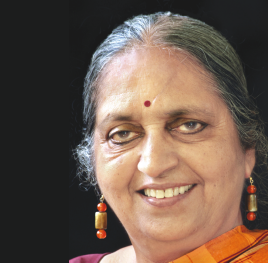
Propelling Nascent Dreams in Journalism - "Usha Rai"
Twenty five years ago IWPC was created as a second home for women journalists–a space of their own where they could let down their
hair, indulge in home cooked food and meet newsmakers for discussions. Though most of the founder members were established journalists, there
were a large number of women on the desk and in language newspaperswho did not getthe opportunity to venture out and experience life as journalists. The shy, younger journalists, we felt, needed a quieter space of their own with opportunities to meet
parliamentarians,social activists and othersfrom the world of art and literature. We also wanted to be different from the Press Club by taking up women’s issues and doing our own in-depth investigative reportsthat couldbe released to the media. In 1994, we decided to make IWPC a spirited but booze less club.We did not have the meansto get a liquor license and also wanted to be different from other clubs! In any case there was the Press Club round the cornerforthosewho likedtheirglass of cheer! Those early days are memorable.We brought
durees and cushions from home, squatted on the floor and discussed giving shape and substance to our second home. We went hunting for unwanted table, chairs, furniture and books and newspapers for our library. It was a happy band of women not riven by politics and
ideologies. Everyone was pushing the other to assume leadership but all contributed to the growth of the club. And slowly it grew. Old furniture gleaned with a new upholstered look as the more artistic among us took charge ofrenovation. Computerstoo came in and it eased filing of stories with coffee, tea, lunches and snacks on command. The excellent cuisine and the winter lunches on the greening lawns under colourful umbrellas were a hit.

Right, Left, Centre….and Everything In-between - "Saroj Nagi"
In many ways, the story of Indian Women’s Press Corps is also the story of the changing face of journalism and indeed of India and its demographic profile. Twenty five years back when the IWPC was established--amidst some protests and a lot of skepticism----as a national all-women journalists’ forum, India was in a churn. The country was changing rapidly and dramatically---politically, socially, economically and even culturally---as it tried to grapple with the aftershocks of the mandal and mandir agitations and the demolition of the Babri Masjid, the opening up of the economy or the emergence of minority/ coalition regimes which sought to build a common agenda to try and steer the nation through choppy waters. There was so much happening all around that would continue to impact people for years to come.Like the country, journalism and journalists too were dealing with new tendencies and trends. The media industry was expanding. Newspapers were setting up multiple editions. Their ownership patterns and objectives were changing. The number of language papers was growing. Private television channels were slowly coming up, bringing with them new tools for gathering, editing and transmitting news and information. The nature, form and content of packaging news, disseminating information or hiring rules were slowly being overhauled. And in keeping with the country’s changing demography, the media industry became the new hunting ground of the young, enterprising, energetic and ambitious youngsters, including females.




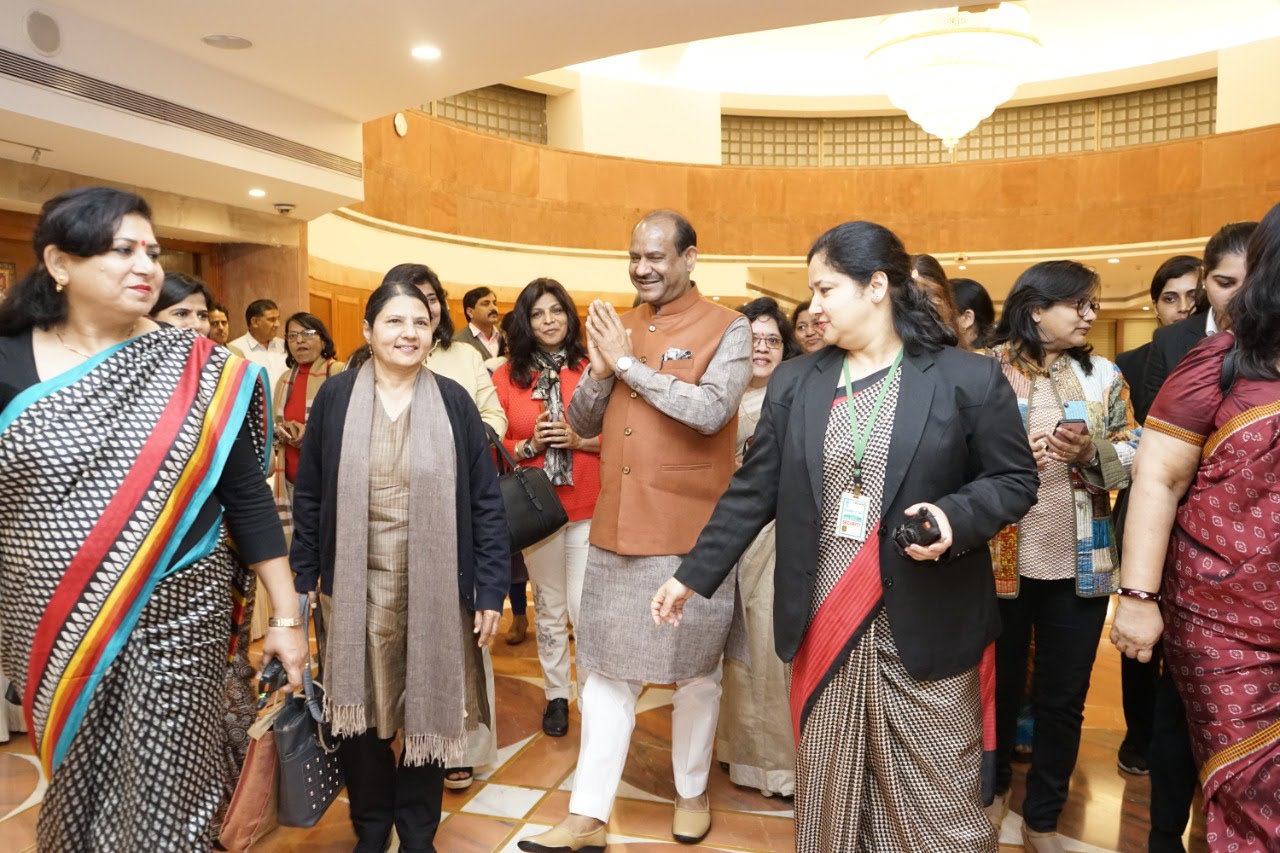
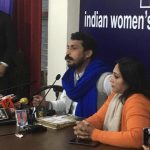
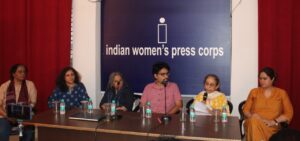
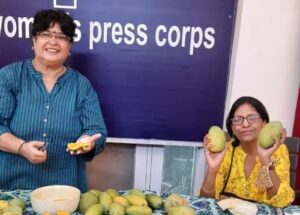
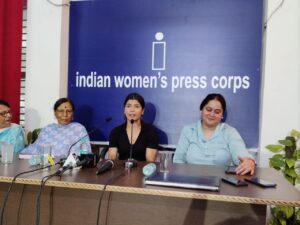
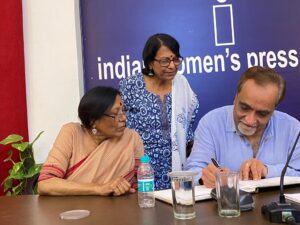
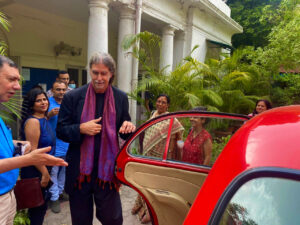
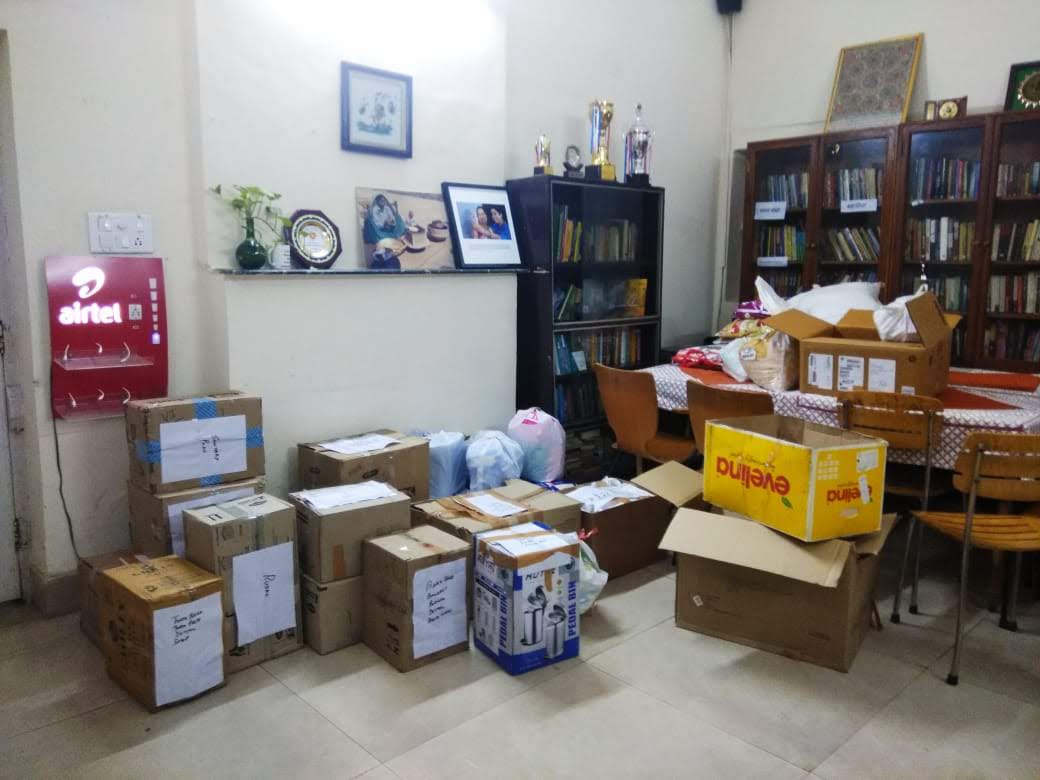


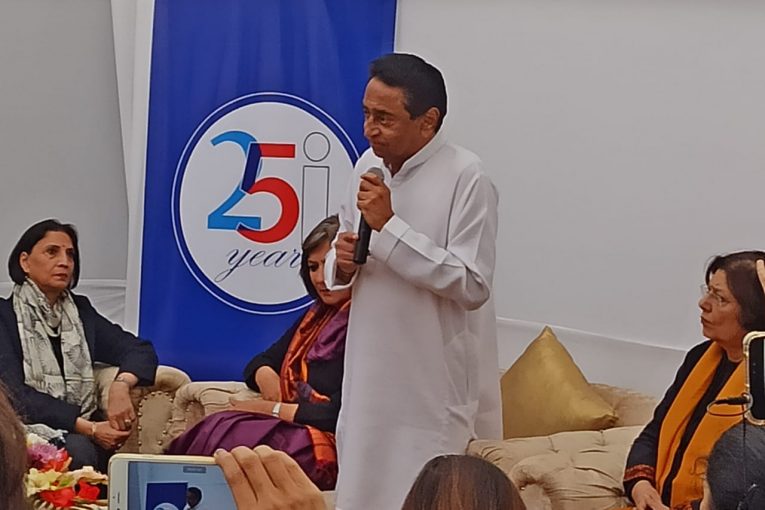






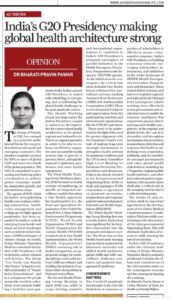 The agenda of 2017, which included strengthening health-care systems, reducing malnutrition, health-crisis management and scaling up the fight against pandemics, has been expanded by India to include emerging trans-border and trans-sectoral challenges such as antimicrobial resistance (AMR) and impact of climate change on health. Prime Minister Narendra Modi has reiterated that India’s G20 Presidency will be inclusive, action-oriented and decisive. The theme “One Earth, One Family, One Future” is based on India’s philosophy of “Vasudhaiva Kutumbakam”, and is a catchphrase for people across the world to collectively work towards building a healthier post-pandemic world. India’s current G20 Presidency is tasked with rebuilding, re-energising, and recalibrating the global health challenges in the post-pandemic context.
The agenda of 2017, which included strengthening health-care systems, reducing malnutrition, health-crisis management and scaling up the fight against pandemics, has been expanded by India to include emerging trans-border and trans-sectoral challenges such as antimicrobial resistance (AMR) and impact of climate change on health. Prime Minister Narendra Modi has reiterated that India’s G20 Presidency will be inclusive, action-oriented and decisive. The theme “One Earth, One Family, One Future” is based on India’s philosophy of “Vasudhaiva Kutumbakam”, and is a catchphrase for people across the world to collectively work towards building a healthier post-pandemic world. India’s current G20 Presidency is tasked with rebuilding, re-energising, and recalibrating the global health challenges in the post-pandemic context.


































